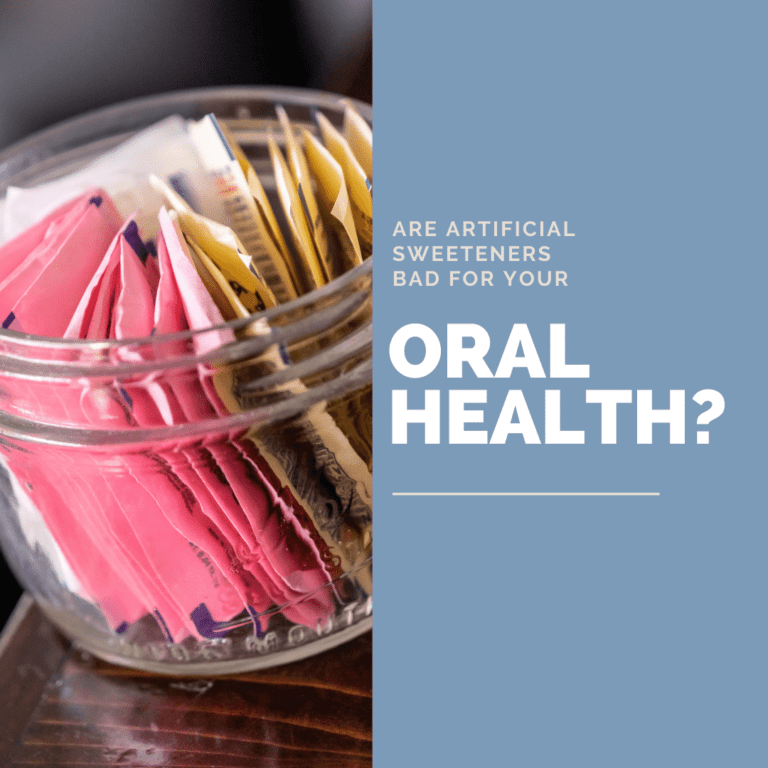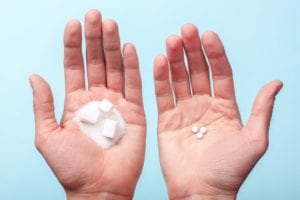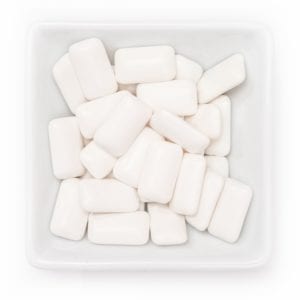Are Artificial Sweeteners Bad for Your Oral Health?

When it comes to foods that are bad for your oral health, most people know that sugar is on the top of that list. This is because sugar feeds the naturally occurring bacteria in the mouth, allowing it to reproduce and to produce acidic waste products. As bacterial populations grow and acidic waste damages the enamel, this drastically increases the risk of tooth decay and gum disease. For this reason, it is important to limit your sugar intake and to practice proper oral hygiene after consuming foods or beverages containing sugar.
While sugar is added to many foods and beverages to make them sweeter, it is no longer the only way to make them sweeter. In fact, nowadays there are a variety of artificial sweeteners added to a variety of foods and beverages in order to sweeten them up. Since these sweeteners are “artificial” and are not technically sugar, many people have begun to wonder if they are bad for your teeth. In order to answer this question, let’s take a look at what artificial sweeteners are and just how they can affect your oral health.
What are artificial sweeteners?
Artificial sweeteners are a type of sugar substitute that are often marketed as “sugar-free” or “diet”. They are much sweeter in taste than sugar and don’t add any calories. For this reason, they are a popular choice in foods such as baked goods, candy, puddings, canned food, dairy products, jams and jellies, and soft drinks or drink mixes. Artificial sweeteners commonly used include:

- Saccharin (Sweet N Low, Sugar Twin)
- Aspartame (NutraSweet, Equal)
- Acesulfame Potassium (Sweet One, Swiss Sweet, Sunett)
- Sucralose (Splenda)
- Advantame
- Neotame (Newtame)
- Xylitol
How do artificial sweeteners affect my oral health?

First and foremost, artificial sweeteners are not sugar. This means that bacteria cannot consume them and produce acidic waste products. In this respect, artificial sweeteners do not pose a threat to your oral health and are considered safer than sugar.
However, foods and beverages that use artificial sweeteners can still potentially damage your teeth. This is because many of the foods and beverages that contain artificial sweeteners also have a high acid content in order to make them taste better. Foods and beverages with fruit or citrus flavors have even higher levels of acid to give them that tart taste. Unfortunately acidic foods and beverages that contain citric, tartaric, or phosphoric acid can easily damage your tooth enamel.
The one artificial sweetener that has been shown to not harm your oral health is xylitol and it is found in sugar-free gum. Certain studies indicate that not only is xylitol safe for your teeth and gums, but it can also reduce tooth decay. This is because xylitol helps to stimulate saliva production, which is the body’s natural way of cleaning the mouth of bacteria and neutralizing harmful acids from foods and beverages. If you cannot brush your teeth after eating a meal, it is recommended to chew on some sugar-free gum containing xylitol to clean your teeth and prevent decay.
Overall, artificial sweeteners do not affect your teeth in the same way that sugar does, however they still have the potential to be harmful to your oral health due to their high acid content that erodes enamel. For this reason, it is recommended to limit your consumption of artificial sweeteners, especially those that are fruit or citrus flavored. Additionally, it has been shown that xylitol may help prevent tooth decay by cleaning the mouth after a meal.






Recent Comments